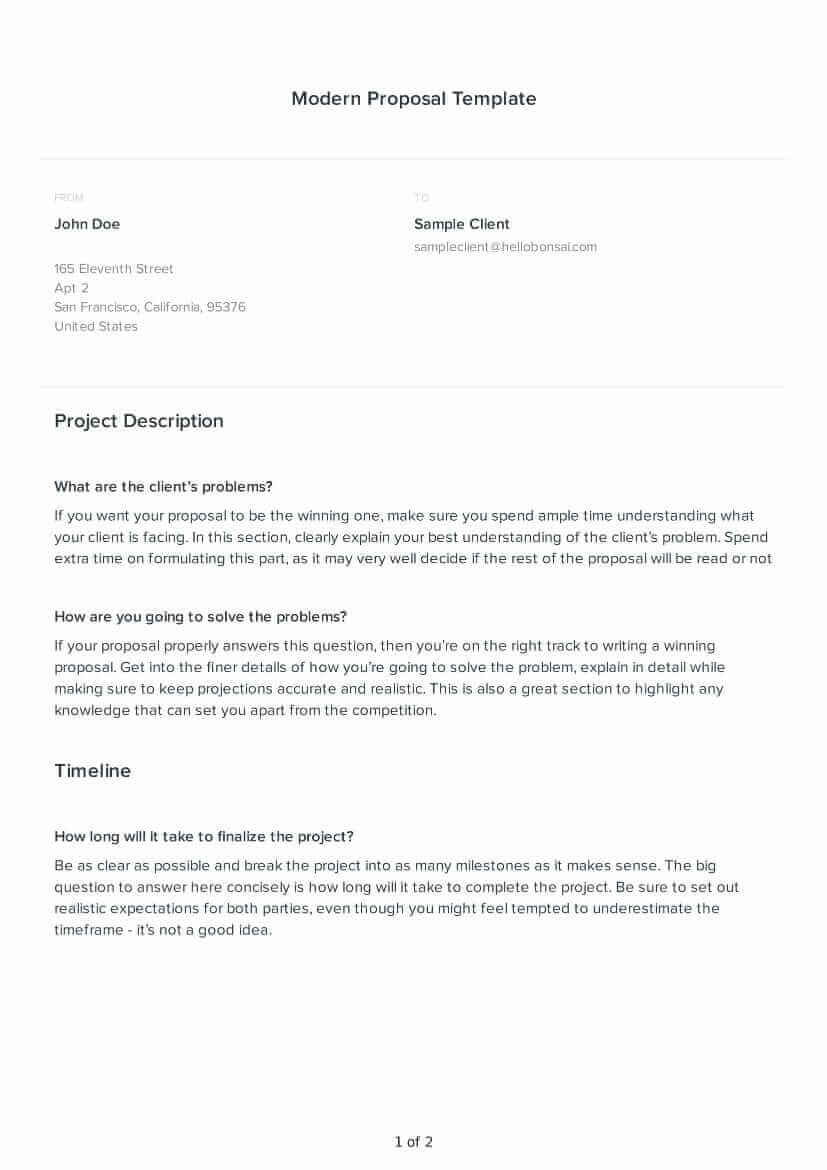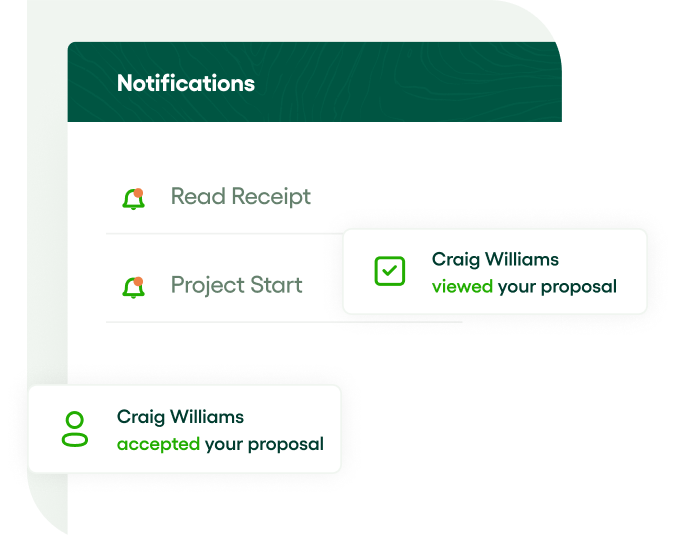A coaching proposal template is essential for coaches to effectively pitch their services and win clients. Start by outlining your coaching objectives, process, and pricing. Include a visually appealing cover, a pre-written services section, and a detailed timeline. Use tools like Bonsai for customizable templates that save time and enhance professionalism. In 2026, focus on digital signing and seamless client communication to boost conversion rates. By presenting a clear, comprehensive proposal, coaches can leave a lasting impression and increase their chances of securing new business.
As a coach, writing a compelling proposal can be the most crucial step in your sales process. If done correctly, your clients won't be able to refuse working with you and you will leave your clients with an excellent first impression. It's time to promote your abilities and yourself! But marketing may not be your best skill, and you might need some help crafting a nice document that guarantees your success.
If that's the case, keep reading. We will show you how to write a coaching proposal to help you create a comprehensive document that leads to sales. You can also use this information to create your own sample proposal templates so that later you can quickly fill in the client-specific information and save tons of time. Let's get to it!
Note: Create bulletproof proposals and boost your conversion rate using Bonsai's free coaching proposal templates, specifically designed for professionals in the coaching industry. Get fully-customizable templates and the best follow-up tools to get more business in no time! Claim your 7-day free trial here.

What is a coaching proposal?
A coaching proposal is a suggested course of action for prospective clients to move from where they are currently to where they want to be. It helps to establish a foundation and clarity for how you and your customers will collaborate to support them in achieving their goals. It can also be used by coaches to track progress and make adjustments to the coaching program as needed.
You should ideally send out a coaching proposal within 1-3 days after you meet up with your client personally and discover their needs. Never send a proposal before your discovery session, so you can make sure the client is a good fit to your profile and you're confident you can provide the right coaching package for them.
Even if you briefly discussed some of your packages and how you envision the coaching relationship, it's important to send out a proposal where you can fully detail the services you plan to offer and enhance your sales process. Read on to find out what your coaching proposal should include.
What elements should your coaching proposal include?
A coaching proposal can take a lot of different forms. Depending on the coaching specialty (life coach, executive or business coaching, etc...) and the customer, many types of information may be included in a coaching proposal. However, there are several essential elements that you must always keep in mind when you create proposals for your new clients.
Let's review each of these key elements.
Client's Concerns
By the time you sit down to draft your coaching proposals, you should have already had a discovery call to identify your client's issues. Before you go on to explain how you will help them achieve their goals you must show that you clearly understand what they're struggling with. Include a section to list out your findings during the discovery call and what your coaching strategy will focus on.
Ideally, try to use the same language your prospects used during the discovery call to describe their problems. Don't try to be so clever or too formal with your words as you may lose the prospect because they could find it hard to relate with your offer.
Recommended reading: check out this sample mentoring program proposal guide to get an idea for how to write one.
Desired Results & Benefits
Next, you want to let your prospective clients know why they buy your coaching package, and what are the benefits for them. List the desired outcomes as they specifically relate to the objectives that you previously uncovered, as well a description of how you plan to work with the client. Don't dive too deep into the specific number and timeline of the sessions (this will be covered later), but try to paint a clear picture of the process you follow to achieve the best results for your clients.
It's also a great practice to include milestones, to specify when your client can expect to see results, as long as the program is followed properly. Additionally, include your 'unique selling points' to make sure your client clearly sees why you are their best option.
Testimonials and Reviews
Social proof is really important to create trust with your prospective clients. Especially if you have experience in helping other clients successfully overcome similar problems as your prospective customer, you might also want to include a short testimony or positive reviews. This is a great chance for you to reinforce your professionalism, experience and expertise. Make sure to keep it short as otherwise your clients may skip this section altogether.
You could also provide a link to your coaching website which has the testimonials laid out.
Note: Get access to a pre-made proposal template you could use customize and pitch to new clients. Our documents come pre-structured and easily editable. Try a 7-day free trial today.
Coaching Services
Next, it's time to present the ideal coaching package for your client, outlining the specific services this tailored plan will include. You must specify the number of sessions, how long and the frequency of them, assessments or tests included, email support in between, access to private community, material, and anything else your plan includes.
Ideally, you should only offer one package, as you want to show that you already took your time to review their situation specifically and created a plan that is designed for them. But you may also include other package alternatives if you think they are also applicable. This is also the right place to discuss pricing, as well as how and when you expect to get paid for the services.
.png)
Next Steps
Now that you have pitched your amazing offer, it's time to let your prospects know what to do next. Provide clear instructions on how to begin the coaching process, including how to make the first payment, sign the contract and book their first session. State that you will be open to any questions or clarifications they need as well as what is the best way and time to contact you.
Remember, to avoid back and forth calls, you can also add a FAQ's section at the end of your proposal answering the most common questions you get about your packages. Additionally, you can ask your customer to get back with you before a specific date in order to guarantee the price and if you will be making a follow-up call, let them know when this will happen. Try our coaching agreement template to kickstart the business relationship.

Use our free coaching proposal template
While your coaching proposal should be tailored to each of your clients, there is a way for you to make the onboarding process more efficient. You can quickly create the perfect proposal using Bonsai's free coaching proposal template. Simply download the template and customize it as you like to add your business branding, then save it in your preferred format to create a professional document for every single new client.

Our proposal templates also allow your clients to accept the offer directly from the file through the implementation of legal digital signatures. We will also help you keep track of your proposals by sending you a notification when the prospect receives and accepts the offer, as well as setting automatic email reminders. Furthermore, Bonsai helps you manage your coaching projects like a true professional with accounting, invoicing and tax software to take your business to the next level.
Get started today with our 7-day free trial and see for yourself why we are the go-to solution for freelance professionals in all industries.

.webp)





